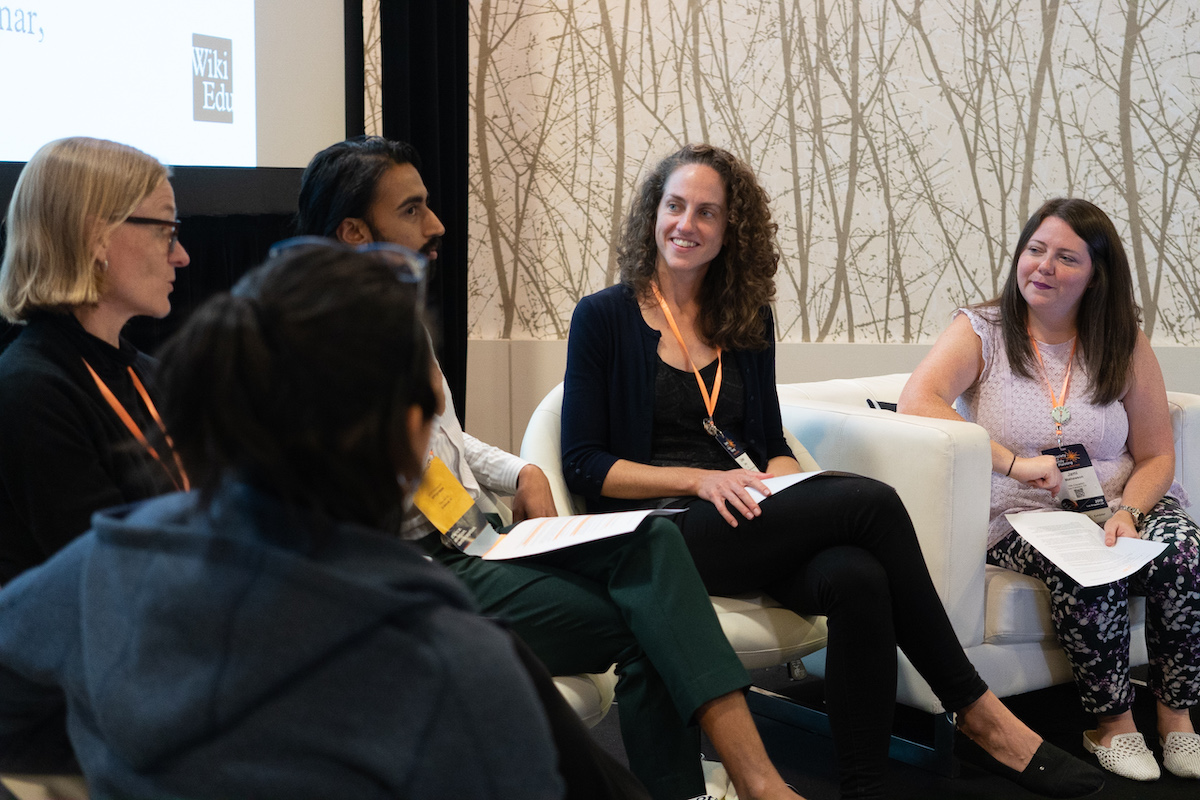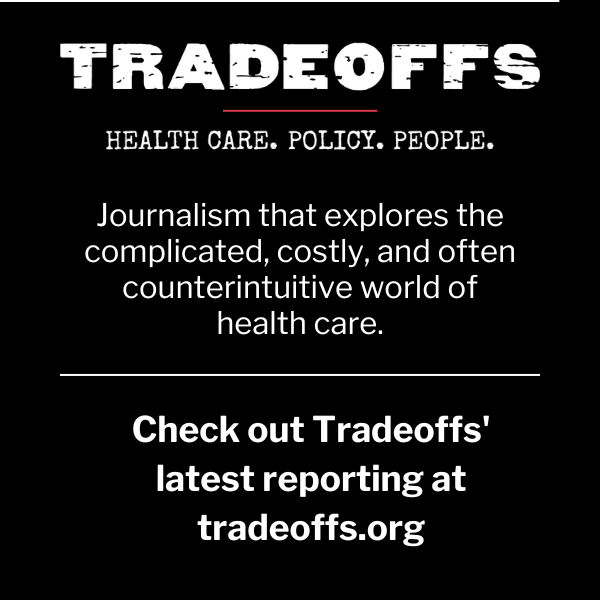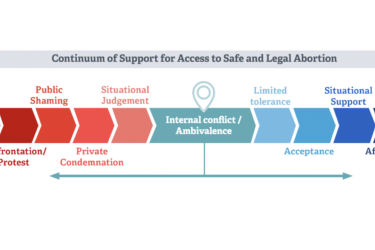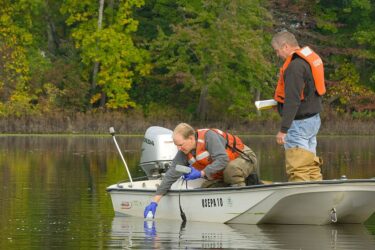Reporters experienced in covering medical research conferences develop habits, strategies and routines for finding interesting research, getting the most out of the sessions, finding good on-site sources, developing story ideas and — perhaps most challenging — managing time and workflow.
But the experience can be overwhelming to those just starting out. It can also be daunting for freelancers who don’t have a publication that will cover conference fees and travel costs or one committed to publishing your stories. The tips below explain what you can do in the weeks before and during a conference to make for an easier, less hectic experience.
1. Freelancers: Approach publications two to three months in advance.
You may be able to find a publication to cover some or all of your costs of attending a conference in exchange for generating a handful of stories. If you must pay your own way, see if you can line up publications that will tentatively commit to taking some stories, details of which you’ll iron out closer to the conference when panel information becomes available. Consider pitching one or two Q&As with prominent panelists you can line up in advance for on-site interviews. And be on the lookout for conferences that are near your home to avoid travel expenses.
2. Book your hotel early! Freelancers can cut costs by sharing a room.
Book your hotel as early as possible — even if you’re not sure if you can go. Meeting blocks fill up fast, and you can usually cancel up to a day or two before the conference with no penalty fees. Freelancers, check to see if conference organizers have set up an online bulletin board where people looking to double-up on hotel rooms can find each other. Sharing a room is also a great way to network; roommates can help each other with story ideas, sources and covering panels.
3. Be sure your credentials are good to go.
Press credential requirements vary widely. Some may demand a formal letter from your editor and sample clips, while others accept nearly anyone with a legitimate blog. Find out what you need to provide well in advance, and double check at least two weeks before the conference that everything is in order. For freelancers, the AHCJ Freelance Committee has an ongoing effort to allow you to register for meetings without a specific assignment letter from an editor. You can find the list of organizations that have so far agreed to credential AHCJ members at AHCJ’s Freelance Center.
4. Find out what press resources will be available.
Most conferences have a press room; plan to find it soon after arriving. Most of them have a media kit containing press releases, embargoed abstracts, pressers and other helpful information. The press officers are there to help you; take advantage of that. If you’re a freelancer and don’t have an editor to brainstorm with, don’t be shy about using the press officers to help you generate story ideas and find sources to talk to. The press room is also a great place for freelancers to meet each other — or potential future editors — and share tips for covering conference panels and selling stories.
5. Download and review the conference app.
Nearly all conferences these days have apps. These apps can be invaluable for planning sessions, marking “favorites,” setting reminders for an upcoming session, looking up speaker bios and conflicts of interest, and sometimes even downloading presentation slides or taking notes. It’s easier to use the app at the conference if you’ve downloaded it ahead of time to familiarize yourself.
6. Study the schedule and plan ahead.
This may seem obvious, but make sure to study the entire schedule and decide which sessions you’d like to attend. There’s nothing more overwhelming than deciding what sessions to cover on site. You will almost always change your schedule plans multiple times while at the conference, but it’s much easier to do that if you already have a set plan. It’s also wise to look at backup sessions. Late-breaking sessions can be particularly valuable for last-minute big news. Plan to attend more sessions than you need to in case some of your coverage plans don’t pan out.
Try to arrive at each panel session early to get a front row seat, which is helpful for recording audio (sit near a speaker if possible), taking photos of the slides if necessary and snagging interviews with panelists afterward. If a mic for audience questions is near the front row, even better: You can see the names of audience members who ask questions or offer comments. Sitting up front also gives you easier access to the session moderators afterward for outside comments on the studies.
7. Look up potential interviewees ahead of time.
If there are certain researchers, presenters or physicians you know you’ll want to interview, contact the conference’s press office and see if they can help set up an interview and/or look up their contact info and reach out to the researchers directly. You can also ask folks ahead of time what sessions they’re most interested in as a way to look for story ideas.
If you’re unable to set something up ahead of time, at least check all the days they are speaking so you can plan to track them down that day. Some speakers only stay for part of a conference, so don’t wait until the last day to try to find them. And don’t forget to collect panelists’ business cards and contact information in case you need to fact check, ask a followup question or arrange a later interview.
8. Pre-reporting is crucial.
For sessions you plan on attending, try to read about the topic ahead of time so you can recognize terms and understand context during the presentation.
9. Freelancers: Act fast.
Freelancers should not hesitate to email or call an editor immediately following a panel session about a great story idea. Come with a list of editors and their contact info so that you can pitch the idea immediately.
10. Find out if slides and handouts will be available.
Most conferences will provide handouts of the slides and other materials for each session, but check ahead of time. Even if the conference makes these handouts available, don’t assume you’ll have access to all the ones you need. Handouts might not be shared for certain sessions for a variety of reasons (e.g.,the session type, sensitive images in the slides, etc.). Plus, if the organization relies on presenters themselves to upload the slides, you’re at the mercy of that presenter’s memory and schedule.
If the slides aren’t available, plan to sit where you can take photos of the slides. Even at conferences that state no photography is allowed, the press is usually allowed to take photos for reporting purposes only. And if you might write about certain presentations once you’re back home, be sure you’ve downloaded the slides you need because access may expire after a certain date.
11. Check out the poster sessions.
While the symposiums, lectures, plenary and abstracts sessions are important, don’t overlook the poster sessions, which are usually presented in exhibit halls. Posters can often yield real gems, either in the subject matter or in the sources. Their results are presented on poster boards, which you can take photos of to reference later. While you’re in the exhibit hall, make time to swing by some of the exhibit booths too. You may find a new resource or potential story leads.
12. Check out your food, drink and local transportation options.
If you’re staying in the conference hotel, transportation may be less important, but if it’s a hotel with just a single restaurant full of overpriced and less-than-appetizing food, you’ll probably want alternatives. Use Google Maps, Yelp and similar apps to explore what options are around. And save those receipts! If you aren’t reimbursed, these out-of-pocket expenses are tax deductible.
13. Take advantage of social events.
Sometimes the best place to find possible sources or new story ideas is talking informally with conference attendees at social mixers, receptions, evening entertainment and other non-research events. As a bonus, these events often have free food, so if you’re a freelancer on a budget, it’s a way to save money.
14. Take care of yourself!
You won’t be able to do quality work if you’re exhausted or get sick, so pace yourself. You don’t have to go to every session. Don’t forget to wear comfortable shoes — convention centers are huge, and you’ll probably be walking miles each day. Also pack a sweater or jacket in case the rooms are blasting air conditioning. Even if food options are plentiful, pack a couple of protein bars or other snacks in case you don’t have time to grab something while rushing from one session to another. Finally, step outside the convention center at least once each day for some fresh air.










